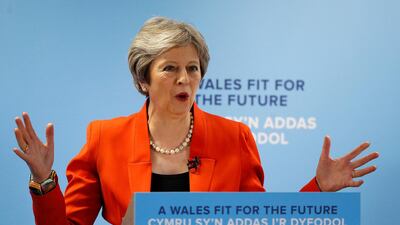After a week of increasing chaos, with a lost vote on the EU Withdrawal Agreement and a thwarted vote of no confidence in the government, the last thing that the political classes of Britain wanted to hear were rumours of an imminent election.
However, according to Stephen Bush, the influential political editor of the New Statesman, nine government ministers – including three in the cabinet – have told their local Conservative associations to prepare for an early poll.
“In addition, a further two associations reported that speakers had suggested moving fundraising events to accommodate a possible contest,” he wrote.
Perhaps to curb the air of febrile tension across Westminster, Theresa May responded to the speculation created by the article when her spokesman told the Westminster lobby of political journalists on Friday lunchtime that there would be no snap election.
“Downing Street spokeswoman insists Theresa May is ruling out a snap general election. Tuck that one away for future reference,” wrote Kevin Schofield, editor of PoliticsHome.com, on Twitter:
But the New Statesman story chimed with a report in the Daily Mail on Thursday which said that the country’s highest ranked civil servant, Cabinet Secretary Sir Mark Sedwill, had ordered his senior staff in Whitehall to draw up plans for an election which could take place as early as February 28.
With Mrs May seemingly unable to get a parliamentary majority for any single deal which would resolve the stand-off in the House of Commons, the newspaper claimed that even Conservative cabinet ministers accepted that an election was the only to get through the impasse.
Under the current law, introduced by David Cameron in 2011 to attempt to make snap elections as thing of the past, elections can only be held at five-year intervals. But if the sitting government can procure a majority of two-thirds, an election can be called.
_______________
Read more:
Threat to block John Bercow peerage could rebound
Vote on May’s Brexit deal: Who are the movers and shakers?
BBC: British parliament’s speaker John Bercow to quit
_______________
This would require the Labour opposition to back such a call – which given that this is currently the policy of Jeremy Corbyn’s leadership would not appear to be a problem. The Labour party backed the last election in 2017 which broke the five-yearly cycle and saw their vote increase massively.
Former foreign secretary Boris Johnson came out against an early poll during a speech on Friday in which he sought to re-establish himself as a runner in the next Conservative party leadership contest, saying “most people in this country feel that they've had enough elections.”

